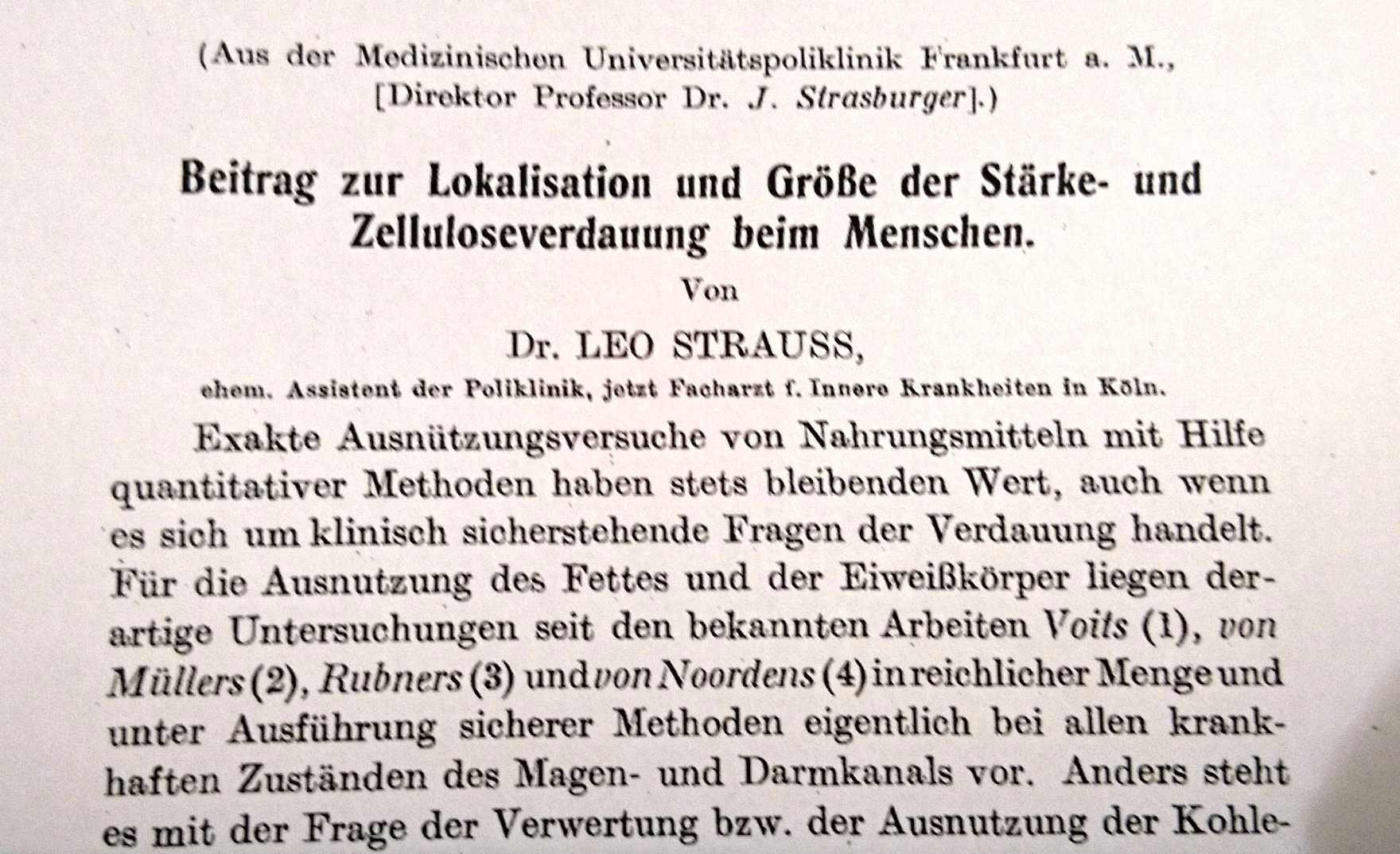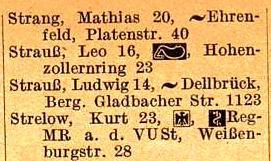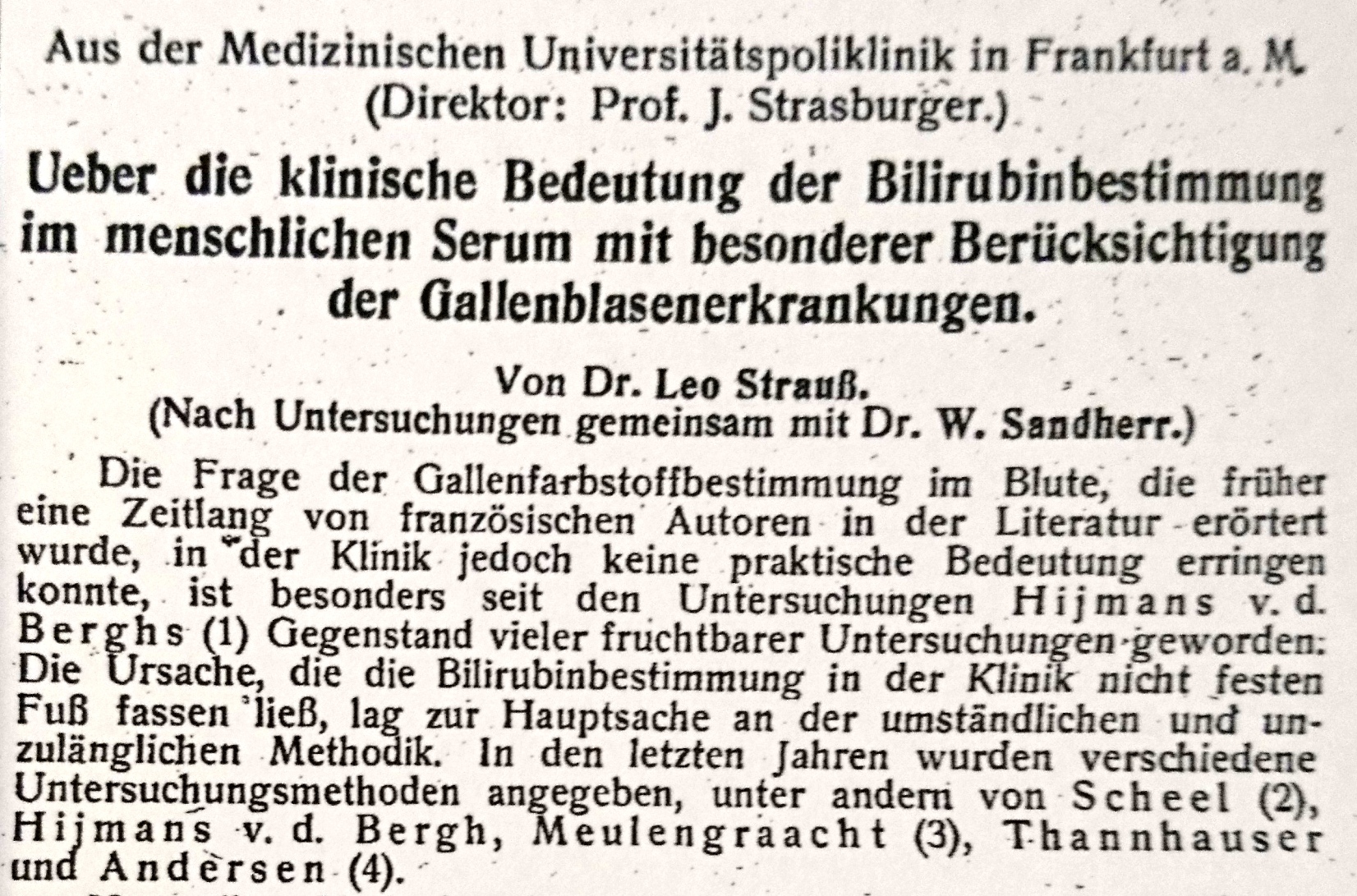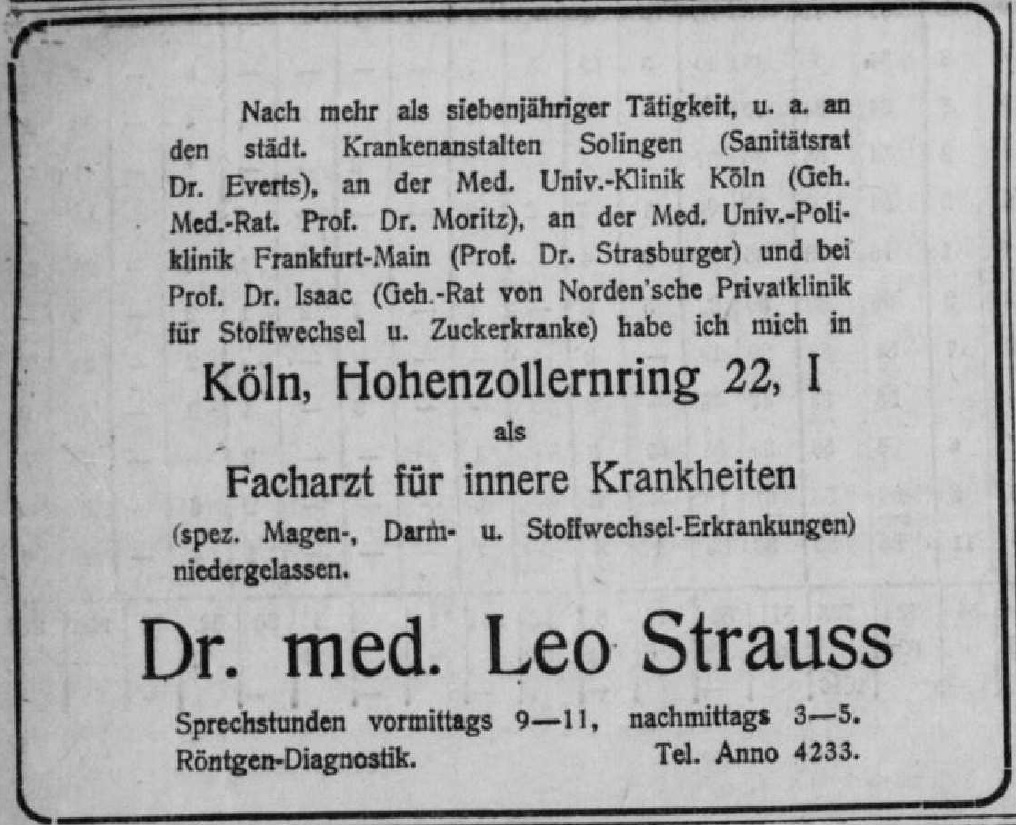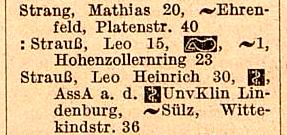Dr. med. Leo Strauss
- Cologne, 13.07.1891
- Barnstable, Massachussetts, USA, 22.10.1974
- Member since 1929
- Escaped to the USA in 1938
- Cologne
- Specialist in gastrointestinal and metabolic diseases in private practice
Leo Strauss was born in Solingen on 13 July 1891 as the son of the merchant Simon Strauss and his wife Bertha, née Stiel. The family lived as members of the Jewish faith.
Education and Workplaces
After attending the Solingen grammar school, Leo Strauss studied medicine at the University of Bonn, among other places, from 1910 onwards. After passing the state examination and receiving his doctorate, he was licensed to practise medicine in 1916. After having received his licence, Strauss actively participated in the First World War as a battalion and deputy regimental doctor until 9 December 1918.
His six-year clinical training included placements at the Solingen Municipal Hospital, at the Cologne-Lindenburg University Medical Clinic under Friedrich Moritz and at Carl von Noorden’s Frankfurt Private Clinic for Metabolic and Diabetic Diseases. Leo Strauss worked as an assistant physician at the Medical Polyclinic of the University of Frankfurt under Julius Strasburger from 1922 to 1924. In Frankfurt a. M., he worked on methodological questions of bilirubin determination as well as on the digestion of starch and cellulose.
Leo Strauss opened his own practice for gastrointestinal and metabolic diseases – including a laboratory and X-ray room – on Hohenzollernring in Cologne in November 1924. He treated private patients as inpatients at the hospital of the Augustinian nuns (“Severinsklösterchen”) in Cologne’s Südstadt, where he worked with the head internist Max Dietlein. His practice was extraordinarily successfull and had a large number of patients. Strauss married Elise Stamm in Frankfurt a. M. in 1926. The marriage was divorced in January 1938.
The entry for Dr. Leo Strauss in the Reichsmedizinalkalender (Reich Medical Calendar) 1937 has a colon before his name, denoting and stigmatised him as a Jew. The stomach symbol after his name identifies him as a specialist in gastrointestinal and metabolic diseases. In the supplement to the Reichsmedizinalkalender of 1937 the entry “Ausland” (abroad) is found after his name.
Escape to the USA
“As I am a Jew – as evidenced by my birth certificate – my practice was considerably downsized from 1933 onwards, so that I was forced to emigrate. I was able to initiate my emigration in 1937” (Leo Strauss, sheet 6, compensation application 1954).
Strauss left Cologne on 16 September 1937 and initially stayed with relatives in Brussels, as he had to wait for a visa for the USA. He travelled to Mandate-Palestine for a short while, where his brother Albert Strauss had fled to. He returned to Brussels and was able to reach the USA from Rotterdam aboard the S.S. Volendam on 10 January 1938. Leo Strauss reached New York on 18 January 1938.
Strauss obtained his licence to practise medicine in May 1939 after having passed language tests and the American state examination and opened a general internal medicine practice in East Orange, Essex County, New Jersey. He was unable to return to practice as a gastroenterologist. He worked part-time at the East Orange General Hospital, New Jersey, until 1 April 1957.
Leo Strauss died at the age of 83 in Barnstable, Massachussetts in October 1974.
His elder brother Albert Strauss (1890 – 1961), who had been a well-respected lawyer in Solingen since 1919, fled to Palestine with his family in August 1933. He could no longer work in his profession. He first worked as a small farmer, later as an accountant for the agricultural cooperative Kfar Bialik. Leo’s younger brother, the merchant Walter Strauss, fled to the USA and reached New York in August 1938. He lived in Richmond, Indiana and died in 1952.
Acknowledgements
We are very grateful to Thomas Deres, Historical City Archive of Cologne, for his valuable advice in searching for traces on Leo Strauss. We would like to thank the staff of the North Rhine-Westphalia State Archives, Rhineland Department, Duisburg, for their help and for providing access to the Leo and Albert Strauss compensation files.
Biogrpahy translated by Rachel Hinterthan-Nizan
Sources and Further Reading
Sources